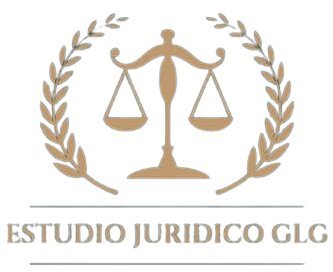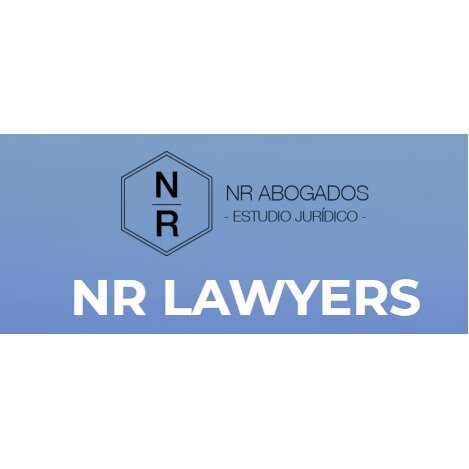Best Child Custody Lawyers in Argentina
Share your needs with us, get contacted by law firms.
Free. Takes 2 min.
Free Guide to Hiring a Family Lawyer
Or refine your search by selecting a city:
List of the best lawyers in Argentina
About Child Custody Law in Argentina
Child custody law in Argentina is governed by the Argentine Civil and Commercial Code, which emphasizes the best interests of the child in any custody arrangement. Legal custody, known as "patria potestas," refers to the rights and responsibilities that parents have concerning the care and education of their children. Physical custody involves where the child lives. The law usually favors joint custody, allowing both parents to share responsibility for their child's upbringing unless it's deemed harmful to the child's welfare.
Why You May Need a Lawyer
There are various situations where seeking legal advice for child custody in Argentina might be necessary. Such cases include divorce or separation, disputes over parental rights, relocation issues, or disagreements about the child's primary residence. A lawyer can provide guidance in navigating complex legal procedures, negotiating amicable solutions, and advocating in court when necessary. They ensure your interests and those of your child are adequately represented and protected.
Local Laws Overview
Key aspects of child custody laws in Argentina include:
- The principle of the best interest of the child is paramount in deciding custody matters.
- Joint custody is generally favored unless there's a compelling reason for one parent to have sole custody.
- Parents must adhere to visitation rights and schedules set by the court or agreed upon in mediation.
- Child support is determined based on the financial status of both parents and the needs of the child.
- Modification of custody agreements can be requested if there's a significant change in circumstances.
Frequently Asked Questions
What is the difference between legal and physical custody?
Legal custody involves decision-making rights about major aspects of the child's life, while physical custody concerns where the child resides.
Can grandparents obtain custody rights?
Grandparents may apply for custody if both parents are deceased or considered unfit, prioritizing the child's best interests.
How are custody decisions made in Argentina?
Court decisions are based on the best interests of the child, including emotional, educational, and health needs.
Can a parent move the child to another city or country?
Relocation requires consent from the other parent or court approval, especially if it impacts the child's relationship with the non-custodial parent.
What happens if one parent denies visitation rights?
The denied parent can file a complaint in family court to enforce the visitation agreement.
How is child support calculated?
Child support is based on the income of both parents and the needs of the child, ensuring they have necessary resources for their upbringing.
Can custody arrangements be modified?
Yes, parents can request modifications due to significant changes in circumstances, such as employment status or health issues.
What role does a child's preference play in custody decisions?
A child's preference may be considered by the judge, particularly for older children, as long as it aligns with their best interests.
How long do custody proceedings usually take?
Duration varies based on the complexity of the case and whether it involves court trials or mediation agreements.
Is mediation necessary in custody disputes?
Mediation is often encouraged or required, seeking an amicable resolution before escalating to court proceedings.
Additional Resources
Here are some resources that may be helpful:
- Argentine Ministry of Justice and Human Rights for legal frameworks and guidance.
- The Argentine Association of Family Law for professional services and advice.
- Local family courts for filing custody claims and accessing mediation services.
Next Steps
If you need legal assistance in child custody matters, consider consulting with a specialized family law attorney who can provide personalized advice based on your situation. You may also contact legal aid services if affordability is a concern. It's important to gather all relevant documentation, such as existing court orders or agreements, before seeking legal help. Lastly, prepare to discuss your desired outcome and potential solutions for your child's welfare.
Lawzana helps you find the best lawyers and law firms in Argentina through a curated and pre-screened list of qualified legal professionals. Our platform offers rankings and detailed profiles of attorneys and law firms, allowing you to compare based on practice areas, including Child Custody, experience, and client feedback.
Each profile includes a description of the firm's areas of practice, client reviews, team members and partners, year of establishment, spoken languages, office locations, contact information, social media presence, and any published articles or resources. Most firms on our platform speak English and are experienced in both local and international legal matters.
Get a quote from top-rated law firms in Argentina — quickly, securely, and without unnecessary hassle.
Disclaimer:
The information provided on this page is for general informational purposes only and does not constitute legal advice. While we strive to ensure the accuracy and relevance of the content, legal information may change over time, and interpretations of the law can vary. You should always consult with a qualified legal professional for advice specific to your situation.
We disclaim all liability for actions taken or not taken based on the content of this page. If you believe any information is incorrect or outdated, please contact us, and we will review and update it where appropriate.
Browse child custody law firms by city in Argentina
Refine your search by selecting a city.















